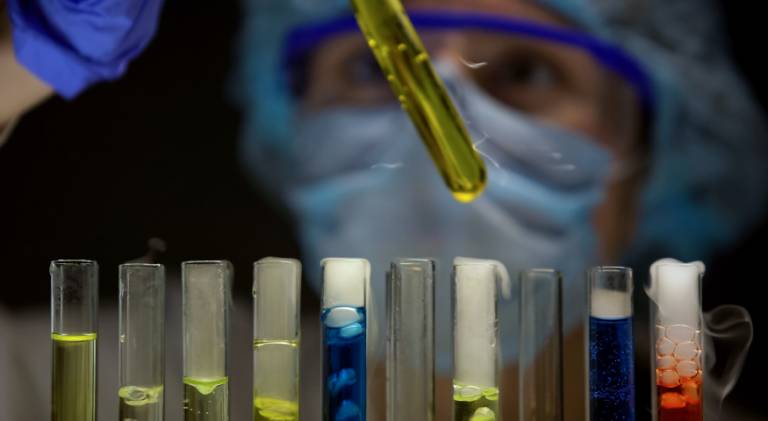New approaches to catalyst design, developed at UCL, are now being shared with leading manufacturers to develop more efficient and sustainable catalysts.

Catalysis is hugely important to the British and global economy (worth £50 billion and £1.5 trillion per annum respectively). 80% of every man-made industrial chemical/product has encountered a catalyst at some point in its development or production.
So, any improvement in catalyst performance leads to direct economic and environmental benefits, by reducing unwanted products or lowering energy costs.
These efficiency savings are particularly important when producing chemicals and in low carbon energy generation and storage.
Now, thanks to research into the behaviour of catalytic materials developed by UCL (and earlier at the Royal Institution) and partners, catalyst manufacturers are able to design much more efficient catalysts.
The UCL team uses computational and advanced X-ray, Neutron and Laser techniques, to model and predict the structures and properties of catalysts, and to follow their evolution in real time, during a catalytic reaction. This greater understanding of catalyst properties and behaviour makes it possible to significantly enhance the performance of large-scale industrial catalytic processes. Much of the work is based in the UK Catalysis Hub Centre on the Harwell Science and Innovation Campus.
A collaboration between UCL and Johnson Matthey has allowed the manufacturer to develop new catalysts for sustainable hydrogen, oxidation and clean air applications.
Finden, a company co-created by UCL academic Professor Andrew Beale and providing advanced analytical services, helps to translate this research into many other companies, too.
Knowledge-transfer activities enabled by the UCL team’s work have also resulted in UCL-trained scientists being employed by a number of industry partners, extending and broadening the impact of the work.
Professor Sir Richard Catlow, one of the key academics in this work from UCL Chemistry, said: “Developments in fundamental science over decades are now having a substantial industrial impact. The role of catalysis is more important than ever, as we transition away from fossil fuels – and this interaction between universities and industry is helping us to translate these fundamental insights into significant business and societal benefit.”
Read the full story on the UCL Research Impact website
 Close
Close


